Bipolar Disorder Treatment in Los Angeles
Bipolar Disorder
Your Mental Health matters at 90210 Recovery
Bipolar Disorder Treatment in Los Angeles
Bipolar disorder is a complex mental health condition that involves extreme mood swings ranging from emotional highs, known as mania or hypomania, to depressive lows. The disorder, once referred to as manic-depressive illness, significantly affects a person’s energy, activity levels, judgment, and behavior. Individuals with bipolar disorder may find it challenging to maintain relationships, hold steady employment, and lead a balanced life due to the disruptive nature of the condition. Furthermore, those suffering from bipolar disorder often turn to drugs and alcohol to self-medicate, exacerbating both their mental health and substance use problems.
At 90210 Recovery, a premier residential drug rehab and detox facility, we recognize that treating substance abuse alone is not enough when co-occurring mental health conditions, such as bipolar disorder, are present. Our specialized treatment programs address the underlying causes of addiction, including the challenges posed by bipolar disorder, to promote lasting recovery.
We Make Sure You Get the Help You Need
Understanding Bipolar Disorder
Bipolar disorder typically manifests as distinct periods of mania or hypomania, where the individual may experience a heightened sense of euphoria, increased energy, and impulsive behavior, followed by periods of depression, where the person may feel deeply sad, fatigued, and even suicidal. These mood shifts can last for days, weeks, or even months, with varying degrees of severity. Bipolar disorder is categorized into several types:
- Bipolar I Disorder: Characterized by manic episodes lasting at least seven days, or by manic symptoms that are so severe that immediate hospitalization is required. Depressive episodes typically last for at least two weeks.
- Bipolar II Disorder: Defined by a pattern of depressive episodes and hypomanic episodes, which are less severe than full-blown manic episodes.
- Cyclothymic Disorder (Cyclothymia): Involves periods of hypomanic symptoms and periods of depressive symptoms that are not as severe or long-lasting as those in bipolar I or II disorder.
- Other Specified and Unspecified Bipolar and Related Disorders: This category includes bipolar-like conditions that do not follow the classic patterns of bipolar I, II, or cyclothymia.
The mood fluctuations associated with bipolar disorder can be incredibly disruptive and lead to impulsive and risky behaviors, poor decision-making, and strained relationships. For many, the emotional turmoil of the disorder creates a vulnerability to substance abuse as a way to cope with their symptoms.
Mental Health and Substance Abuse
How Bipolar Disorder Leads to Substance Abuse
People with bipolar disorder are significantly more likely to struggle with substance abuse compared to the general population. In fact, research suggests that more than 60% of individuals with bipolar disorder will experience some form of substance abuse during their lifetime. This comorbidity can be attributed to several factors:
- Self-Medication: Many individuals with bipolar disorder turn to drugs or alcohol in an attempt to regulate their moods. For example, during depressive episodes, they may use substances like alcohol or sedatives to numb their feelings of sadness and despair. During manic or hypomanic episodes, stimulants or other energizing substances may be used to heighten the euphoria or keep up with the increased energy levels.
- Impulse Control Issues: Mania and hypomania often lead to impulsive behaviors, including risky drug or alcohol use. A person in a manic episode may not fully recognize the consequences of their actions, leading to dangerous substance use patterns.
- Escapism: For many people with bipolar disorder, the fluctuations in mood can feel unbearable. Drugs and alcohol may provide a temporary escape from the emotional roller coaster, offering short-term relief but ultimately leading to long-term addiction.
- Aggravation of Symptoms: Unfortunately, while substances may offer temporary relief, they often aggravate the symptoms of bipolar disorder in the long run. Substance abuse can trigger more frequent and severe mood episodes, create additional mental health challenges, and hinder the individual’s ability to find stability.

Tour Facility
Take a virtual tour of our picturesque estate & beautiful top-rated treatment center in Beverly Hills, CA.

Verify Insurance
We accept many major insurances. Fill out an online form and get a complimentary assessment.

Treatment Options
We are here for you every step of the journey. Learn more about our medical detox, inpatient, and aftercare programs.
Request a 100% Confidential Callback
Still have questions? Request a callback or give us a call today.
- No Obligation When You Call
- All Contact Is Completely Confidential
- We Are a JCAHO Accredited Facility
- Expert and Caring Staff Ready For You
- 5-Star Rated Programming
What to Look For
Signs and Symptoms of Bipolar Disorder
Recognizing bipolar disorder can be challenging, especially because many people experience mood swings in their everyday life. However, the mood episodes associated with bipolar disorder are more extreme and prolonged than typical mood changes. Here are some of the signs and symptoms to look out for:
Mania or Hypomania
- Elevated Mood: A person may feel unusually euphoric, cheerful, or irritable.
- Increased Energy: They may have an excessive amount of energy, leading to hyperactivity, rapid speech, and racing thoughts.
- Decreased Need for Sleep: Individuals in a manic or hypomanic state may feel rested after just a few hours of sleep.
- Impulsivity: There may be an increase in risk-taking behaviors, such as reckless driving, spending sprees, or risky sexual behavior.
- Grandiosity: They may have an inflated sense of self-importance or believe they have special abilities or powers.
Depression
- Persistent Sadness or Hopelessness: The individual may feel deeply sad or hopeless for extended periods.
- Fatigue or Low Energy: They may feel tired all the time, even after sleeping.
- Loss of Interest: Activities that were once enjoyable may no longer bring pleasure.
- Changes in Appetite or Sleep Patterns: There may be significant changes in eating or sleeping habits, such as overeating or insomnia.
- Difficulty Concentrating: A person may have trouble focusing or making decisions.
- Suicidal Thoughts: In severe cases, individuals may have thoughts of self-harm or suicide.
The Need for Treatment
Bipolar disorder is a lifelong condition that requires long-term management. Left untreated, it can lead to severe consequences, including damaged relationships, legal or financial problems, job loss, and a higher risk of suicide. The combination of bipolar disorder and substance abuse can make these outcomes even more likely, which is why integrated treatment is so crucial.
At 90210 Recovery, we understand the unique challenges faced by individuals who have both bipolar disorder and a substance use disorder. Our approach is holistic, meaning we don’t just treat the addiction; we treat the whole person, including their mental health.
How We Help
How 90210 Recovery Treats Bipolar Disorder and Substance Abuse
The team at 90210 Recovery is highly experienced in dealing with co-occurring disorders, such as bipolar disorder and substance abuse. Our treatment programs are designed to address both conditions simultaneously, which is essential for long-term recovery. Here’s how we can help:
- Comprehensive Assessment: Upon admission, clients undergo a thorough assessment to evaluate both their addiction and any underlying mental health conditions, such as bipolar disorder. This allows us to develop a personalized treatment plan that addresses the unique needs of each individual.
- Integrated Treatment Approach: We use a dual diagnosis approach that treats both bipolar disorder and substance use disorder at the same time. Our multidisciplinary team includes psychiatrists, therapists, and addiction specialists who collaborate to provide comprehensive care.
- Medication Management: Bipolar disorder often requires medication to stabilize mood swings and manage symptoms. Our medical team works closely with clients to develop a medication regimen that works for them. This may include mood stabilizers, antipsychotics, or antidepressants, depending on the individual’s needs.
- Therapeutic Interventions: We offer a variety of evidence-based therapeutic approaches, including cognitive-behavioral therapy (CBT), dialectical behavior therapy (DBT), and trauma-informed therapy. These therapies help individuals identify and challenge negative thought patterns, learn coping strategies, and process any past trauma that may contribute to their addiction and mental health issues.
- Supportive Environment: 90210 Recovery provides a safe, supportive, and structured environment where clients can focus on their recovery. Our residential setting allows individuals to step away from the stresses of everyday life and immerse themselves in treatment.
- Aftercare Planning: Recovery doesn’t end when treatment does. We work with clients to develop a comprehensive aftercare plan that includes ongoing therapy, medication management, and support groups to help them maintain their progress after leaving our facility.
Residential Inpatient
Our inpatient rehab program provides a supportive environment to heal.
Aftercare & Alumni
We're here to help you transition to your next steps after our program.
Contact Us
The Road to Recovery Starts at 90210
Living with bipolar disorder and addiction can feel overwhelming, but it’s important to remember that recovery is possible. With the right treatment and support, individuals can learn to manage their bipolar disorder and lead a fulfilling life free from substance abuse.
At 90210 Recovery, we are committed to helping our clients find lasting recovery by treating not only the addiction but the underlying mental health conditions that often contribute to it. By addressing the root causes of substance use, we empower our clients to reclaim their lives and build a healthier, more balanced future.
If you or a loved one is struggling with bipolar disorder and substance abuse, don’t wait to get help. Contact 90210 Recovery today to learn more about our integrated treatment programs and take the first step toward a brighter tomorrow.
We Accept Most Insurance Providers
The 90210 Recovery admissions team works 24/7 to ensure that we can help as many people struggling with substance abuse as we can. Verify your benefits now and we’ll get back to you right away.


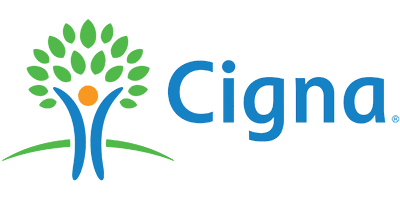

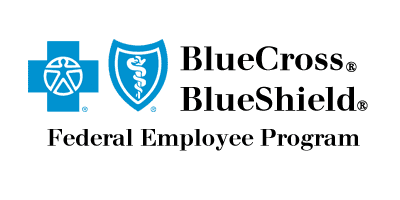
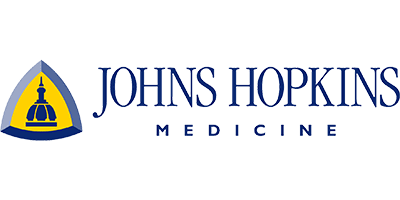
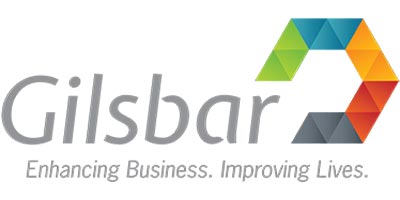






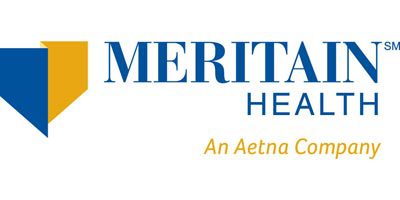




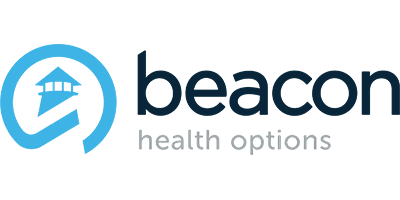












What Our Clients Say About Us
Have received treatment in several different institutions and Hillcrest is the best treatment I've received, by far! The facility is exceptional, staff is exceptional and the environment is very... Read More

